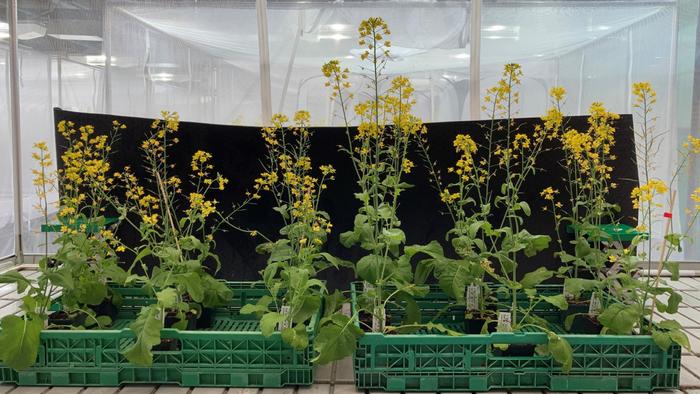Plants that interact with a variety of pollinators and herbivores are better at adapting to different soil types, according to new research from the University of Zurich. This adaptation is crucial for plant survival and agricultural productivity.
The study, led by biologist Florian Schiestl, involved growing about 800 swede plants over 10 generations on different soil types in a greenhouse. The plants were divided into groups, with some pollinated by bumblebees and others by hand. Some plants were also exposed to aphids, which are herbivores that feed on plants.
Bumblebee Pollination and Aphid Exposure Lead to Best Adaptation
After two years of experimental evolution, the researchers found that only the plants pollinated by bumblebees showed clear differences in shape between the soil types. The hand-pollinated plants remained largely the same.
When it came to adaptation to soil types, the bumblebee-pollinated plants with aphids showed the most significant adaptation. The other groups did not exhibit significant adaptation to soil types.
The researchers also identified several genes that may play a critical role in this adaptation process. The results demonstrate that biotic interactions, such as those with pollinators and herbivores, can strongly influence plants’ ability to adapt to abiotic factors like soil type.
“Plants obtain nutrients and water from the soil. Since different soil types differ in their chemical and physical composition, plants need to adapt their physiology to optimize this process on different soil types,” explained Schiestl.
This evolutionary process leads to the formation of ecotypes, which are locally adapted “plant breeds” that may differ slightly in appearance and may no longer be easily crossbred. This effect is considered to be the first step toward the formation of separate species.
The study highlights the importance of maintaining diverse plant-insect interactions for both natural ecosystems and agriculture. By promoting a variety of pollinators and managing herbivore populations, we can help plants better adapt to their environment and improve crop productivity.


